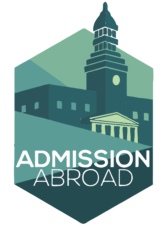Management courses

Accounting is the process of recording financial transactions pertaining to a business. The accounting process includes summarizing, analyzing and reporting these transactions to oversight agencies, regulators and tax collection entities.
Business Analytics is a combination of Data Analytics, Business Intelligence and Computer Programming. It is the science of analysing data to find out patterns that will be helpful in developing strategies. Its usage can be found in almost every industry.
Finance degrees usually cover a combination of technical and theoretical knowledge, including the basic finance skills you will need to enter finance careers. … These include roles in areas such as commercial banking, financial planning, investment banking, money managing, insurance and real estate.
Global MBA is a postgraduate program with a framework that imparts knowledge, skills, and training to students in international business management. Introducing changes in the conventional MBA program, the Global MBA offers an international perspective to the students.
Hospital management relates to all aspects of a hospital; a coordination of all elements of a hospital. This may range from patient care to record keeping to inventory of medicines and cleanliness.
Hospitality and tourism management refers to management studies pertaining to management in the hospitality industry, of which tourism is a part. … Hospitality and tourism management studies teach students how to succeed in this industry so that they can secure a lucrative and rewarding career.
Definition. International management is the management of business operations in an organisation serving markets and operating in more than one country. … This definition stresses the need for a much more advanced set of skills than managing within national borders.
Civil engineering is a professional engineering discipline that deals with the design, construction, and maintenance of the physical and naturally built environment, including public works such as roads, bridges, canals, dams, airports, sewerage systems, pipelines, structural components of buildings, and railways.
Some typical chemical engineering courses you may cover include fluid mechanics, mass and heat transfer, techniques for separation of materials, thermodynamics, plant design, process systems, process economics, process analysis and process operations.
Aerospace Engineering is a branch of Engineering that provides skills and knowledge to design, manufacture and maintain spacecrafts, aircrafts, missiles and weapons systems. … It also covers two aspects of engineering, namely Aeronautical Engineering and Astronautical Engineering.
Construction management (CM) is a professional service that uses specialized, project management techniques to oversee the planning, design, and construction of a project, from its beginning to its end.
A broad specialization of civil engineering, structural engineering is all about analyzing, planning, designing and overlooking the construction of large structures like bridges, tunnels, buildings, flyovers etc. A large number of builders, contractors or architects hire structural engineers as their consultants.
Petroleum engineering is the branch of engineering courses that deals with the study of production of hydrocarbons such as crude oil or natural gas”. Graduates in Petroleum engineering are called Petroleum Engineers. Petroleum engineers are involved in the production and exploration of oil and gas.
One of the oldest and broadest fields of engineering, Mechanical engineering deals with the design, construction, and use of machines. The program endows students with the basic understanding and knowledge of how heavy tools and machinery work. These engineers also design machines that produce these innovations.
As a student in the course, you will study the various sub-fields of the discipline including digital and analog electronics, electrical power generation, transmission, distribution and utilization, power system engineering, electrical machines and drives, control systems, signal processing and power electronics.
engineering courses

medical courses

Nutrition and Dietetics is a field in medicine science that helps in keeps individuals fit. … These courses enable individuals to create a diet plan and help individuals as well as members of an organization to follow a proper diet to keep themselves fit.
Environmental science incorporates the study of the physical, chemical and biological processes that take place on the Earth, as well as the social, political and cultural processes which impact the planet.
The course is the intersection of two broad subjects- Biology and Technology. In simple parlance, Biotechnology is a field of applied biology that makes use of living organisms or biological systems to make technological advances and use them in various fields.
Biological sciences is the study of life and living organisms, their life cycles, adaptations and environment. … Those who choose to study the biological sciences can expect to expand their knowledge of cell theory, evolution, genetics, energy and homeostasis.
Nursing encompasses autonomous and collaborative care of individuals of all ages, families, groups and communities, sick or well, and in all settings. Nursing includes the promotion of health, prevention of illness, and the care of ill, disabled and dying people.
Physiotherapy as described by World Physiotherapy is a health care profession concerned with human function and movement and maximising physical potential. It uses physical approaches to promote, maintain and restore physical, psychological and social well-being, taking into account variations in health status.
Pharmacology is the study of drugs and how they affect the body. This means creating new chemical substances and analyzing the effects of established medicinal compounds, as well as understanding both the beneficial and harmful effects of drugs.
BDS is the graduation programme to become a dental surgeon. The programme covers various aspects of dental problems, denture and surgery in the same fields. BDS or Bachelor of Dental Surgery is the most popular medical course after MBBS.
It is the use of art and technology to bring images to life, by implementing design and computer software. Art directing, graphic design, video game design, 3D modeling, film and video editing, and stop motion animation are just a few.
Artificial intelligence (AI) is a research field that studies how to realize the intelligent human behaviors on a computer. The ultimate goal of AI is to make a computer that can learn, plan, and solve problems autonomously..
Big data analytics is the often complex process of examining big data to uncover information — such as hidden patterns, correlations, market trends and customer preferences — that can help organizations make informed business decisions.
Computer science is the study of computers and computing as well as their theoretical and practical applications. Computer science applies the principles of mathematics, engineering, and logic to a plethora of functions, including algorithm formulation, software and hardware development, and artificial intelligence.
Computer Systems Engineering focuses on the development of both software and hardware skills for designing and building the smart products that are an integral part of our wired world.
This course provides an introduction to computer networks, with a special focus on the Internet architecture and protocols. Topics include layered network architectures, addressing, naming, forwarding, routing, communication reliability, the client-server model, web and email protocols.
Cyber security refers to the body of technologies, processes, and practices designed to protect networks, devices, programs, and data from attack, damage, or unauthorized access. Cyber security may also be referred to as information technology security.
Data science can be defined as a blend of mathematics, business acumen, tools, algorithms and machine learning techniques, all of which help us in finding out the hidden insights or patterns from raw data which can be of major use in the formation of big business decisions.
Forensic Science is the parent course that has various sub-fields. While Forensic Science consists of Toxicology, Serology, Ballistics to Psychology, Forensic Medicine is a branch that deals in civil or criminal legal cases (investigation). Forensic Medicine is also known as Forensic Pathology.
Software Engineering is the branch of Computer Science dealing with engineering principles and programming languages as they apply to software development. These principles include analyzing user requirements and then designing, building, and testing software to satisfy those requirements.
COMPUTER SCIENCE & IT courses

